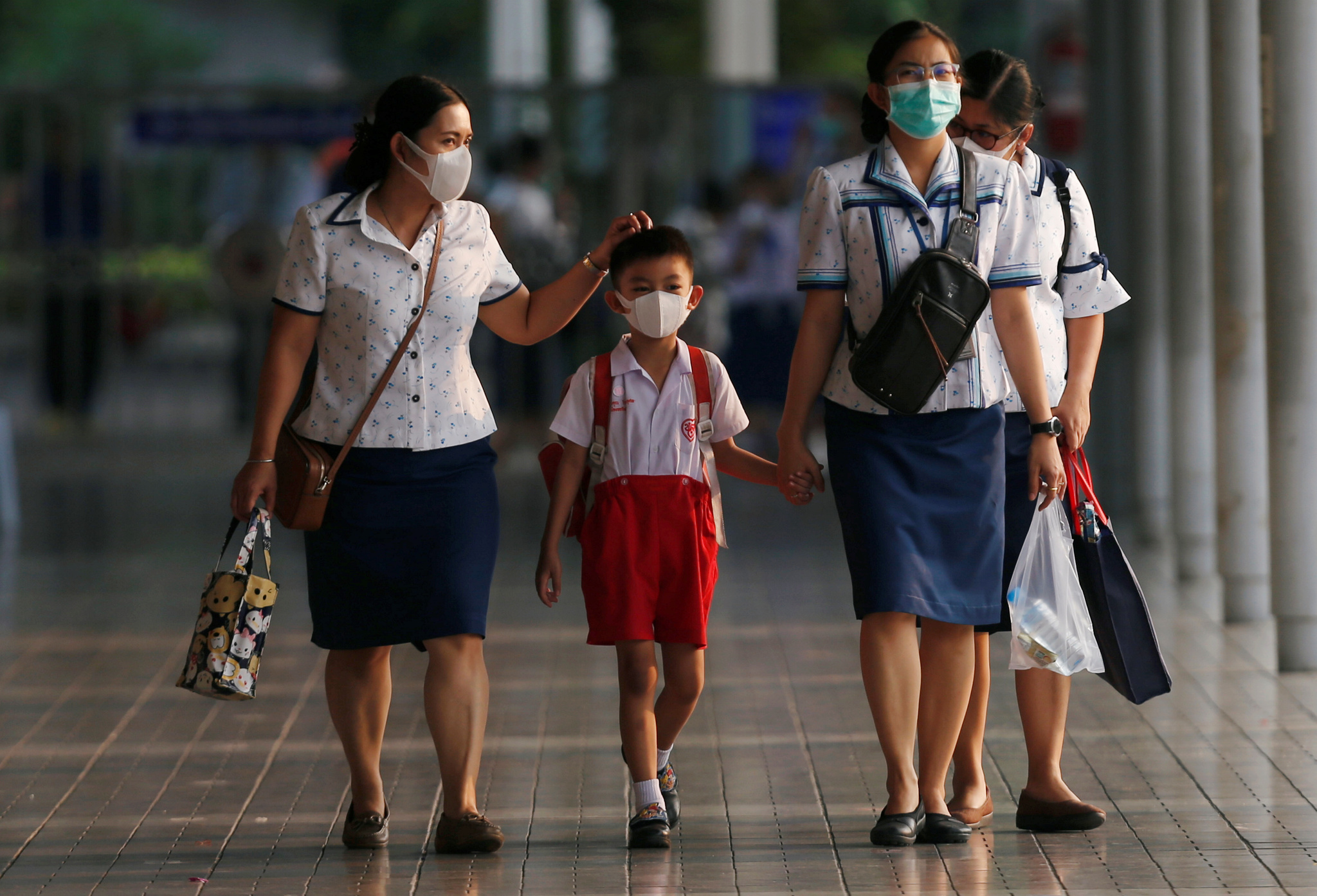Although the first cases of contagion of Covid-19 in children have been confirmed in Italy, the message of the specialists is of "prudence, tranquility and, above all, not to create social alarm", considers María José Mellado, head of the Pediatric Service and Infectious and Tropical Diseases of the Hospital La Paz, in Madrid, and president of the Spanish Society of Pediatrics (SEP).
In the Alpine country, the head of Health of Lombardy, Giulio Gallera, confirmed that, for the first time, there had been several cases of infection by coronavirus in minors in Lombardy, although he stressed that "they are in good condition", Soraya Melguizo reports. This is a 4-year-old girl, two of 10 and one of 15, of whom two are admitted to hospitals in the region. All are in good condition and come from the area of Codogno, the locality isolated for four days and considered one of the main foci of the virus.
Although at first everything seemed to point to the new coronavirus affecting children to a lesser extent, they have the same risk of infection as an adult, although "it seems that the disease is less serious, as it happens with the flu, which does not mean that any affected child can get serious, as with any other pathology, "Mellado emphasizes.
Like the flu
Transmitting messages of tranquility is also, and at the moment, fundamental for Marisa Navarro, of the Infectious Diseases Section of the Pediatric Service of the Gregorio Marañón Hospital, in Madrid. Covid-19 is a respiratory virus that seems to be "proving not to be very aggressive, but that, logically, being new, is catching us without immunity. Its transmission is high, but it does so through the same mechanisms as the virus. of the flu or a cold, for example: by respiratory secretions. "
It can be present without symptoms, with little symptomatology, similar to a cold, or present with symptoms of lower respiratory tract infection, such as pneumonia.
The question in the air that all parents are asking is: if my child starts now with a high fever, cough and seems not to breathe well, what do I do? The pediatricians agree: do the same thing that would have been done last year or if the symptoms had occurred at the beginning of winter, for example, and monitor how the process is going, since in any case, the variations in the symptoms do not They are abrupt and most likely their disease is more related to other viruses that cause colds or flu, such as rhinovirus and influenza.
In case of no improvement, consult your doctor, as you would in any other situation. "It is important," says Navarro, "to take into account the criteria for an epidemiological case developed by the Ministry of Health protocol: having been in contact fourteen days before with people from the areas of Wuhan, in China, or from northern Italy. Tomorrow , the picture may vary, but at this time there is no cause for alarm, because most likely a child is affected by the flu virus or rhinovirus. "
Do the usual
Nicking is also blunt: if a child becomes ill, but has not come from a trip to these areas, the same thing has always been done: administer medication that relieves his symptoms - paracetamol if he is older - and monitor his progress : If you have had a high fever for two days and show decay, see a family doctor.
A different scenario would be that of children with symptoms and who have recently traveled to the regions of countries of greatest contagion. In these cases, both pediatricians believe that it would be best to contact 112, that the child will stay in their room until medical services arrive, monitored by their parents who, in this case, should wear a mask until confirming or discarding the presence of coronavirus, and decide which would be the most appropriate action.
Groups of children at higher risk
Children at risk - with cancer, who have undergone transplants, immunocompromised or with heart or lung disease, among others - the action "should be the same as would be carried out in case of suspicion of any other infection" because, on the day of Today, "we have no epidemic in Spain," stresses the president of the SEP.
For example, a child with cancer who begins at home with discomfort or with a high fever would have to go to the emergency room of the hospital where his pathology is being followed or consult with his doctor. "It would not be necessary to make any significant change, except that it has come from the affected areas or has had contact with a patient from them to assess the picture," says Navarro.
Taking into account that this type of coronavirus will probably "stay with us" as one more circulating virus, the essential thing at this time "is to remain very expectant, to carefully follow the recommendations of the Health Administration and, above all, not to create social alarm , which is leading to the shortage of masks only indicated in medical and health personnel, and that leads to the population's unease, "says Mellado.
According to the criteria of The Trust Project
Know more- Coronavirus
- Covid 19
- Science and Health

